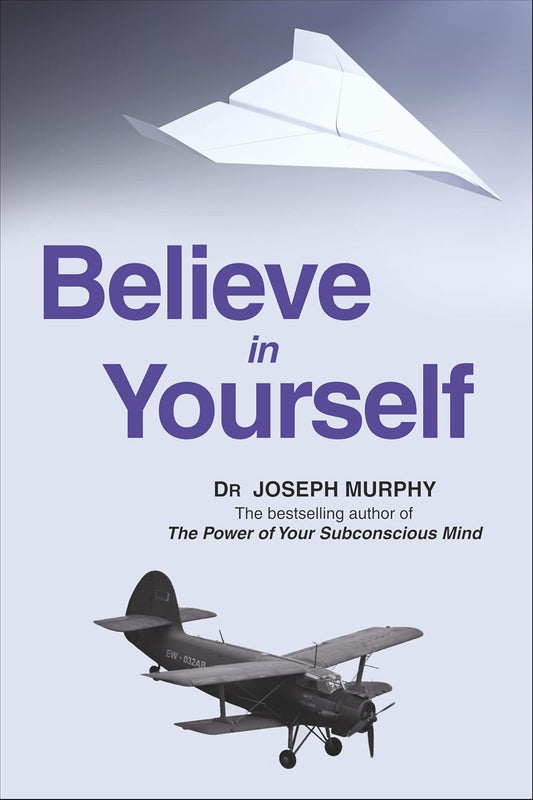We often hear about the benefits of reading non-fiction—how it can expand your knowledge, improve your skills, and help you stay informed. But when was the last time someone told you why you should read fiction? Fiction isn’t just about getting lost in a story. Reading fiction has a profound impact on both your mind and soul that you might not have realized.
So, let’s explore why fiction deserves a spot on your reading list and how it can benefit your life in ways you might not expect.
1. It Boosts Your Imagination
Fiction is a playground for the imagination. Every book, from fantasy novels to historical fiction, invites you into new worlds where anything is possible. As you dive into these stories, you exercise your creative muscles. Your brain learns to build worlds, characters, and situations from scratch.
This imaginative thinking can then translate into other areas of your life, helping you think more creatively in your work, relationships, and problem-solving. Fiction helps you dream beyond boundaries, allowing you to see things from new perspectives.
2. It Increases Empathy
Ever cried over a fictional character? Or laughed with them? That emotional connection is no accident. Fiction offers a chance to step into someone else’s shoes and experience their joys, struggles, and triumphs.
Whether you're reading about the grief of a protagonist in a literary novel or celebrating their success in a feel-good romance, you begin to understand and share in their emotions.
As you connect with characters from diverse backgrounds and walks of life, your empathy grows. You start to see the world through other people's eyes, which can make you more compassionate and understanding in your everyday life.
3. It Provides a Safe Space for Exploring Difficult Topics
Fiction doesn’t shy away from complex or sensitive issues. Whether it’s exploring mental health, social injustice, identity, or loss, fiction provides a safe space to explore difficult emotions and topics.
These stories allow you to confront hard truths in a non-threatening way, giving you the space to reflect on your own life experiences.
Through fiction, you can examine issues like grief, love, and redemption without being overwhelmed by them. Books like "The Fault in Our Stars" or "The Kite Runner" tackle deep emotional journeys, helping you process your feelings and understand others’ experiences more profoundly.
4. It Reduces Stress and Offers Escapism
Sometimes, life can feel like it’s moving at a hundred miles per hour. The world is constantly demanding your attention, and your mind is filled with to-do lists. Fiction offers a much-needed escape.
Getting lost in a story is like pressing the pause button on life. As you immerse yourself in a narrative, you forget about your worries for a while. It’s mental self-care, allowing you to unwind and relax.
Whether you're reading about an epic adventure, a whodunit, or a romantic escapade, fiction can help reduce stress and clear your mind.
5. It Expands Your Vocabulary and Communication Skills
If you want to improve your vocabulary and communication, reading fiction is one of the best things you can do. Fiction authors are often masters of language—they know how to evoke emotions, describe scenes, and bring characters to life using rich and varied vocabulary.
As you read, you’ll encounter new words, phrases, and expressions that you might not come across in everyday conversations.
The beauty of fiction is that these new words come within context, helping you understand and remember them better. Better vocabulary means stronger communication skills, which can improve both your personal and professional interactions.
6. It Encourages Reflection and Critical Thinking
Fiction isn’t just about following a plot; it often presents complex moral questions, different perspectives, and unpredictable outcomes. As you read, you’ll often find yourself questioning characters’ motivations, wondering what you would do in their shoes, or debating the moral dilemmas the author introduces.
Fiction sparks critical thinking. It encourages you to analyze situations, weigh outcomes, and reflect on your own beliefs. By processing these thought-provoking ideas, you become better equipped to tackle real-life situations with a thoughtful, informed approach.
7. It Creates Connection
Fiction brings people together. From book clubs to online communities, readers often bond over shared stories. These books create conversations that go beyond the pages, forming connections between people who may have never met otherwise. Discussing your favorite characters or the plot twists you didn’t see coming creates an emotional bond between readers.
Additionally, fiction helps you connect with yourself. The characters you relate to, the worlds you escape into, and the stories that speak to you can reveal new aspects of your own identity and inner world. You may even find personal growth in the process of reflecting on these stories.
8. It Cultivates a Sense of Wonder
One of the most rewarding aspects of fiction is that it reminds you that the world is full of wonder and possibility. Fiction stirs the imagination, fuels curiosity, and opens up the limitless potential of storytelling.
Whether it's exploring a magical realm or following a detective’s unraveling case, fiction encourages you to think big, to wonder about the unknown, and to see life with a sense of childlike awe.
Reading fiction fills your life with stories of hope, adventure, love, and courage. It encourages you to explore the unseen, whether in real life or the worlds the authors create.
Final Thoughts
Incorporating fiction into your reading routine isn't just about entertainment—it's an investment in your mental well-being, emotional health, and personal growth. The benefits are profound and long-lasting, from stimulating your imagination to expanding your empathy, offering a space for reflection, and reducing stress.
Fiction also nurtures your vocabulary and critical thinking skills while creating a sense of connection and wonder that nourishes your soul.
So, whether you’re looking to escape, explore new ideas, or reflect on your own life, fiction is a powerful tool that nurtures both your mind and heart. Let stories transport you to places where you can learn, grow, and be inspired—one page at a time.
Why to Read Fiction Book? FAQs
How does reading fiction benefit me?
Fiction enhances imagination, empathy, and critical thinking while providing relaxation and stress relief.
Can reading fiction improve my mental health?
Yes! It can reduce stress, improve mood, and provide an emotional escape from daily pressures.
Does fiction help with learning and brain function?
Absolutely! It strengthens cognitive skills, boosts vocabulary, and improves focus and comprehension.
Can reading fiction make me more empathetic?
Yes, experiencing different perspectives through stories helps build emotional intelligence and understanding.
Is reading fiction a waste of time compared to non-fiction?
Not at all! Fiction develops creativity, problem-solving skills, and deeper emotional connections.
How can fiction inspire personal growth?
Stories can offer life lessons, motivation, and new ways of thinking about the world and yourself.
Does reading fiction help with sleep and relaxation?
Yes, reading before bed can calm your mind and improve sleep quality, especially if you avoid screens.
How do I choose the right fiction book for me?
Explore different genres, follow recommendations, or pick books that match your interests and emotions.









